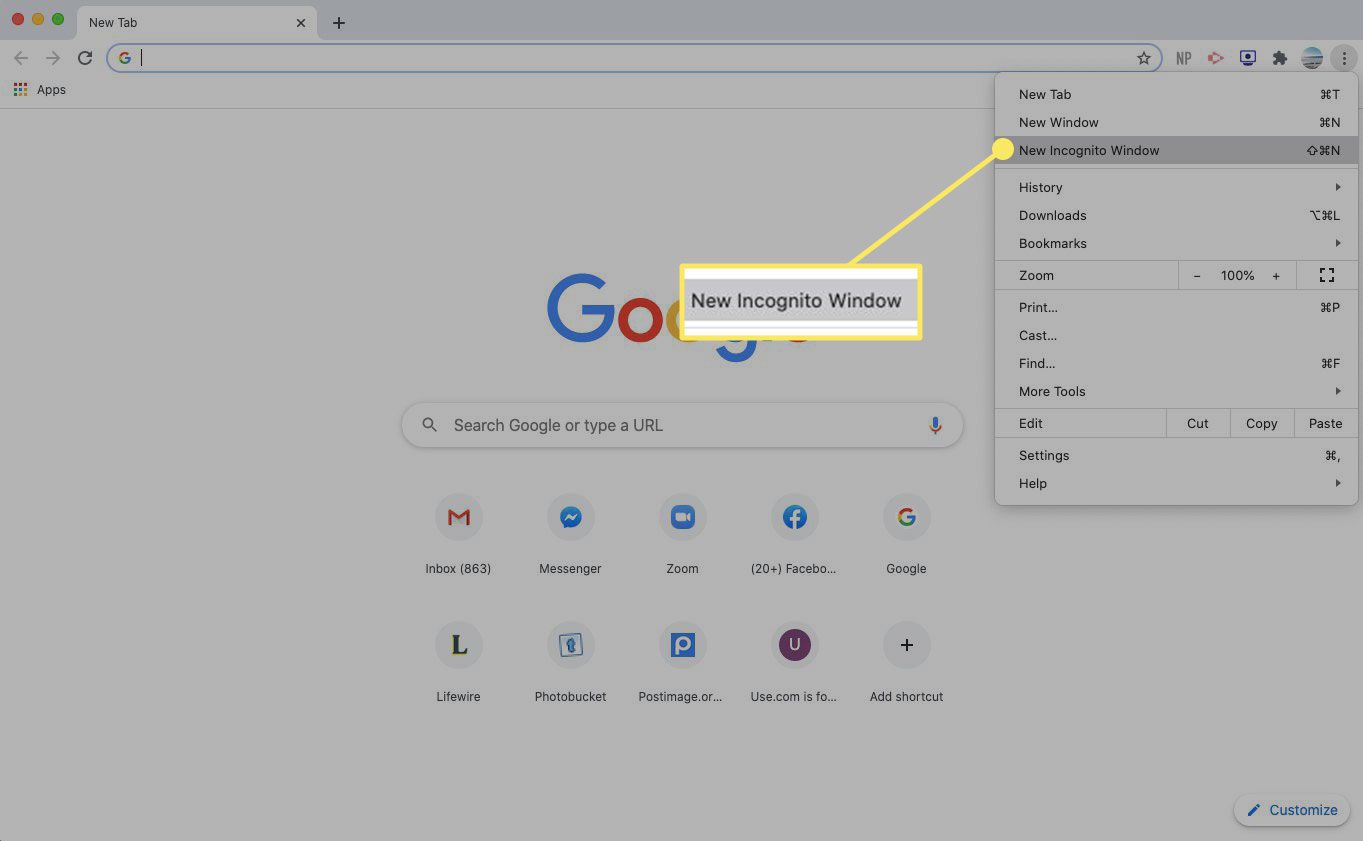Introduction
With the rapid advancement of technology, the internet has become an integral part of our daily lives. Whether it’s for work, research, entertainment, or socializing, we rely on internet browsers to access websites and navigate the online world. But have you ever wondered how many internet browser sessions you can have open at one time?
Internet browser sessions refer to individual instances of browser windows or tabs that are open simultaneously. They allow us to multitask and switch between different websites or online tasks easily. However, there are limits to the number of sessions that can be opened, as each session requires computer resources such as memory and processing power.
In this article, we will explore the concept of browser sessions and delve into the factors that affect the number of sessions you can have open. We will also discuss the implications of memory usage and performance when managing multiple browser sessions. Furthermore, we will differentiate between tabs and windows and their impact on session limits. Finally, we will explore how different browsers have different session limits and provide tips for effectively managing multiple sessions.
By gaining a deeper understanding of these aspects, you will be able to make informed decisions when it comes to managing your internet browser sessions and optimize your browsing experience.
The Importance of Internet Browsers
Internet browsers play a vital role in our online activities, offering a gateway to the vast expanse of information available on the internet. They serve as our primary tool for accessing websites, online services, and various web-based applications. Understanding the importance of internet browsers can help us appreciate why managing browser sessions effectively is crucial.
First and foremost, internet browsers provide us with a user-friendly interface to navigate the internet. They interpret the HTML and CSS code of websites and transform it into visually appealing web pages. Browsers also support various multimedia elements such as images, videos, and audio, enriching our online experience. Furthermore, they enable us to engage with web-based applications, communicate via email, and participate in online forums, among many other activities.
Moreover, browsers play a crucial role in ensuring our online security and privacy. They incorporate features like pop-up blockers, phishing protection, and secure socket layer (SSL) encryption, safeguarding us from malicious websites and unauthorized access to our sensitive data. Browsers also provide options for managing cookies, cache, and browsing history, enabling us to control our digital footprint.
Additionally, internet browsers offer a range of customization options, allowing users to personalize their browsing experience. From changing the appearance with themes and extensions to customizing the search engine and homepage, browsers provide flexibility to tailor the interface according to individual preferences.
Furthermore, many modern browsers offer synchronization features, enabling users to access their bookmarks, history, and settings across multiple devices. This convenience allows seamless transitioning between devices and ensures a consistent browsing experience regardless of the device being used.
Overall, internet browsers have become an essential tool in our everyday lives, simplifying our online activities, ensuring our security and privacy, and providing us with a personalized browsing experience. Recognizing the significance of browsers highlights the need to effectively manage multiple browser sessions to optimize productivity and performance.
Understanding Browser Sessions
Browser sessions are the foundation of our browsing experience, allowing us to open multiple websites or web applications simultaneously. But what exactly is a browser session?
A browser session refers to an individual instance of a browser window or tab that is open on your device. It starts when you launch your browser and ends when you close the window or tab. Each session operates independently, allowing you to navigate different websites or perform various tasks concurrently.
Within a browser session, you can open multiple tabs or windows, each representing a specific web page or task. Tabs provide a convenient way to switch between different websites without opening separate browser windows. On the other hand, opening a new window creates a separate session, allowing you to work on different tasks simultaneously.
It’s important to note that browser sessions utilize computer resources such as memory (RAM) and processing power. As you open more sessions and tabs, the demand for system resources increases. This can have an impact on your device’s performance, especially if you have limited resources available.
Managing browser sessions effectively involves understanding the limitations imposed by your device’s resources. If you exceed the capacity of your device, you may experience slower performance, freezing, or crashing of your browser. It’s important to strike a balance between opening multiple sessions for productivity and ensuring that your device can handle the load.
Furthermore, browser sessions enable certain functionalities like session storage and session cookies. Session storage allows websites to store data temporarily, allowing you to access it as you navigate from one page to another within the same session. Session cookies, on the other hand, are small text files that websites use to store information about your session, such as login credentials or shopping cart items.
Understanding browser sessions is crucial for effectively managing your browsing experience. By being aware of the resources required and the functionalities enabled by sessions, you can optimize your multitasking capabilities, ensure smooth performance, and maintain a seamless browsing experience.
Factors that Affect the Number of Browser Sessions
The number of browser sessions you can have open at one time is influenced by several factors. Understanding these factors can help you determine the optimal number of sessions you can manage without overwhelming your device’s resources.
1. Device Specifications: The specifications of your device, such as the amount of RAM and processing power, play a significant role in determining the number of browser sessions you can open simultaneously. Devices with more powerful hardware can handle a higher number of sessions without experiencing performance issues.
2. Web Browser: Different web browsers have varying session management capabilities. Some browsers are designed to be more lightweight and efficient, allowing you to open a larger number of sessions. It’s important to choose a browser that aligns with your multitasking needs and the specifications of your device.
3. Operating System: The operating system running on your device can impact the number of browser sessions you can open. Each operating system has its own resource management algorithms, and some may allocate resources more efficiently than others.
4. Browser Extensions and Plugins: The number and complexity of browser extensions and plugins installed can affect the number of sessions you can effectively manage. The more extensions and plugins you have, the more resources they consume, which may limit the number of sessions you can open simultaneously.
5. Internet Connection: The speed and stability of your internet connection can impact the number of sessions you can open effectively. Slow or unstable connections can lead to slower page loading times and may prevent you from opening multiple sessions without interruptions.
6. Other Running Applications: If you have other resource-intensive applications running alongside your browser, it can impact the number of browser sessions you can manage. These applications compete for system resources, potentially affecting browser performance.
7. Individual Preferences and Workflow: Your personal preferences and workflow also play a role in determining the number of sessions you can handle. Some users prefer to have multiple sessions open for simultaneous task management, while others find it more productive to focus on one session at a time.
Considering these factors can help you gauge the optimal number of browser sessions you can manage without compromising performance. It’s crucial to find a balance that allows you to multitask effectively and ensure a smooth browsing experience.
Memory Usage and Performance Implications
When it comes to managing multiple browser sessions, one of the key considerations is the impact on memory usage and overall performance. Opening multiple sessions can put a strain on your device’s resources, leading to potential performance implications.
Each browser session requires memory (RAM) to store the data associated with the web pages you have open. As you open more sessions and load web pages, the amount of memory required increases. If your device doesn’t have enough available memory, it can result in sluggish performance, freezing, or even crashes.
Furthermore, excessive memory usage from browser sessions can also impact the performance of other applications running on your device. As the browser consumes more memory, it leaves fewer resources available for other processes, leading to a decrease in overall system performance.
It’s important to note that the memory usage of each session is influenced by factors such as the number of tabs open, the content complexity of the pages, and the presence of multimedia elements. Pages with heavy graphics, videos, or scripts tend to consume more memory than simpler web pages.
To better manage memory usage and mitigate performance implications, here are some tips:
- Close Unnecessary Tabs: Regularly close tabs that you no longer need to free up memory. Keeping a large number of tabs open can significantly impact memory usage.
- Use Browser Extensions for Tab Management: Consider utilizing browser extensions that help manage tabs more efficiently. These extensions allow you to suspend inactive tabs, reducing memory usage.
- Utilize Session Management Options: Many browsers offer session management features that allow you to save and restore sets of tabs, making it easier to switch between different tasks without keeping all tabs open simultaneously.
- Disable or Remove Unnecessary Extensions: Evaluate the extensions and plugins installed in your browser. Disable or remove any that are unnecessary or resource-heavy to optimize memory usage.
- Consider Browser Add-ons: Some browsers offer add-ons or features that optimize memory usage, such as reducing the amount of memory consumed by individual tabs or suspending idle tabs.
By being mindful of memory usage and implementing these strategies, you can effectively manage multiple browser sessions while maintaining optimal performance.
Differentiating Between Tabs and Windows
When it comes to managing browser sessions, it’s important to understand the distinction between tabs and windows. While both tabs and windows allow you to open multiple web pages simultaneously, there are key differences that can impact your session management strategy.
Tabs: Tabs are a way to have multiple web pages open within a single browser window. They provide a convenient and organized way to switch between different websites or tasks without cluttering your screen. Each tab represents a separate web page, and you can have multiple tabs open within a single browser session.
One advantage of using tabs is that they generally consume less memory compared to opening multiple browser windows. Tabs share the same browser process and resources, minimizing the impact on your device’s performance. Additionally, tabs allow for easier management and navigation, as they are consolidated within a single browser window.
Windows: Opening a new browser window creates a separate browser session. Each window operates independently, allowing you to work on different tasks or websites simultaneously. This can be useful when you need to have parallel workflows or need to separate tasks for better organization.
It’s important to note that opening multiple windows can have a greater impact on memory usage compared to tabs within a single window. Each window processes its own set of web pages and requires its own memory allocation. Be mindful of the resources available on your device and consider the trade-off between having multiple windows for multitasking purposes and the potential impact on performance.
When deciding whether to use tabs or windows, consider the following factors:
- Task Separation: If you have different tasks or workflows that you want to keep separate, opening multiple windows provides a clear distinction between them.
- Screen Real Estate: Tabs are a more space-efficient option, as they are contained within a single window, allowing you to maximize your screen real estate.
- Memory Usage: If memory usage is a concern, using tabs within a single window might be more advantageous, as it minimizes the overall resource consumption.
- Workflow Efficiency: Consider how you prefer to work and navigate between different websites or tasks. Tabs offer a more streamlined approach, while multiple windows provide a more visually distinct separation.
By understanding the distinctions between tabs and windows, you can make informed decisions on how to effectively manage your browser sessions based on your specific needs and resources. Whether you choose to use tabs within a single window or open multiple windows, it’s important to ensure that your device’s performance is not compromised, and your browsing experience remains smooth.
Different Browsers, Different Limits
When it comes to the number of browser sessions you can open, it’s important to note that different web browsers have varying limits. Each browser is designed with its own set of features, optimizations, and resource management strategies, which can affect the number of sessions it can handle efficiently.
Google Chrome: Chrome is known for its speed and stability, but it can consume a significant amount of memory when handling many tabs or windows. While there is no set limit on the number of sessions you can have open in Chrome, it’s recommended to keep the number within a reasonable range to avoid performance issues.
Mozilla Firefox: Firefox is often praised for its flexibility and customization options. It offers a feature called “Tab Groups” that allows users to create tab collections within a single window, making it easier to manage multiple sessions. Firefox imposes a limit on the number of content processes it can run, so opening too many tabs may result in performance degradation.
Microsoft Edge: Edge, the default browser on Windows devices, is known for its smooth performance and efficient resource management. It has a feature called “Sleeping Tabs” that helps reduce memory and CPU usage for inactive tabs, optimizing the browser’s overall performance. While it can handle a good number of sessions, excessive usage may still impact performance.
Safari: Safari, the default browser on Apple devices, is designed to be highly efficient and optimize resource usage. It provides a feature called “Tab Overview” that allows users to navigate between tabs more easily. Safari has built-in mechanisms to prioritize active tabs and limit the resources consumed by inactive tabs, resulting in better performance even with multiple sessions open.
Opera: Opera is known for its innovative features and focus on speed. It offers a feature called “Workspaces” that allows users to separate tabs into different workspaces, providing an organized approach to session management. While there is no strict limit on the number of sessions, it’s important to consider system resources, as excessive usage may impact performance.
It’s important to keep in mind that the limits mentioned above are general guidelines and can vary depending on factors such as your device’s specifications and the complexity of the web pages being opened. Additionally, browser updates and optimizations can also impact the number of sessions a browser can handle effectively.
When managing multiple browser sessions, consider trying different browsers and their respective features to see which one best suits your needs and preferences. Also, be mindful of the specific limitations of each browser and the impacts on performance, memory usage, and overall browsing experience.
Tips for Managing Multiple Browser Sessions
Managing multiple browser sessions can be overwhelming without a proper strategy in place. To help you optimize your browsing experience and effectively handle multiple sessions, here are some tips to consider:
1. Organize Your Sessions: Create a system to organize your sessions based on different tasks or projects. For example, you can use different browser windows or tabs for work-related tasks, personal browsing, or research. This allows you to switch between sessions more easily and reduces clutter.
2. Utilize Bookmarks: Take advantage of bookmarking features to save frequently visited websites or web pages. This helps you quickly access specific sites without keeping them open in a session, freeing up resources for other tasks.
3. Use Browser Extensions: Install browser extensions that help with session management, such as tab suspenders or session managers. These extensions can help reduce memory usage by suspending inactive tabs or save and restore sets of tabs for future sessions.
4. Customize Shortcuts: Customize keyboard shortcuts to streamline your session management. Assign specific shortcuts to switch between tabs or windows, enabling quick navigation and task management. Most browsers allow users to customize shortcuts within their settings.
5. Prioritize Active Tabs: Focus on the tabs or windows that require immediate attention or active engagement. Close unnecessary tabs or pause/hibernate inactive tabs to conserve resources and improve overall performance.
6. Optimize Page Load: Disable auto-play videos, animations, or ads on web pages to reduce the resources consumed by each tab. This helps improve loading times and prevents excessive memory usage from content-heavy pages.
7. Monitor Resource Usage: Use your browser’s built-in task manager or external tools to monitor memory and CPU usage. This allows you to identify any resource-hungry processes or tabs that may be affecting overall performance.
8. Consider Multiple Devices: If your workload allows, consider utilizing multiple devices for different tasks or sessions. This can help distribute the resource load across devices and improve multitasking capabilities.
9. Regularly Clear Cache and Cookies: Clearing cache and cookies regularly helps free up storage space and ensures a fresh start for each session. This can also help maintain your privacy by removing any stored data from previous sessions.
10. Adjust Browsing Settings: Customize your browser settings to optimize performance, such as reducing the number of concurrent downloads or limiting the number of web pages that can be rendered simultaneously.
By implementing these tips, you can effectively manage multiple browser sessions, maintain optimal performance, and enhance your productivity while navigating the online world.
Conclusion
Managing multiple browser sessions is crucial for optimizing productivity and efficiency in our increasingly internet-dependent lives. By understanding the concept of browser sessions and considering the factors that affect the number of sessions we can handle, we can make informed decisions to ensure smooth performance and a seamless browsing experience.
It is important to recognize that different browsers have varying limits when it comes to handling multiple sessions. Being aware of the capabilities and resource management strategies of different browsers allows us to choose the one that best suits our multitasking needs and device specifications.
Memory usage and its impact on performance are significant considerations in managing multiple browser sessions. By implementing strategies such as closing unnecessary tabs, utilizing tab management extensions, and monitoring resource usage, we can mitigate memory consumption and optimize performance.
Furthermore, understanding the differences between tabs and windows can help us make more efficient decisions when it comes to organizing and managing our sessions. Whether we choose to use tabs within a single window or open separate windows for different tasks, striking a balance is key to maintaining performance and workflow efficiency.
Lastly, adopting tips like organizing sessions, utilizing bookmarks, customizing shortcuts, and optimizing page load can enhance our ability to manage multiple browser sessions effectively. Regularly clearing cache and cookies, monitoring resource usage, and adjusting browser settings also contribute to optimizing our browsing experience.
In conclusion, being mindful of browser sessions and employing effective management strategies empowers us to navigate the internet more efficiently, improve productivity, and ensure a smooth and enjoyable browsing experience.

























